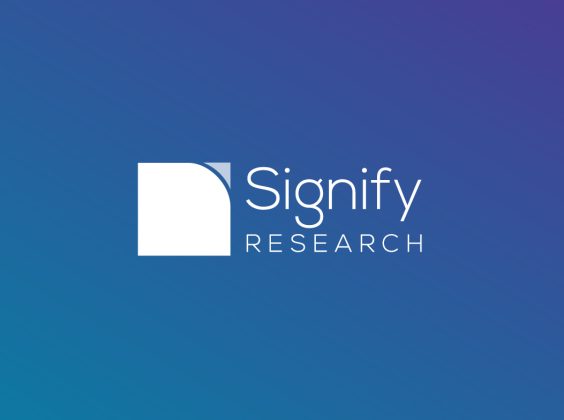
Written by

Cranfield, UK, 11th February 2020 – Written by Alex Green – Last week CompuGroup Medical (CGM) and Cerner entered into a purchase agreement for the acquisition of parts of Cerner’s Healthcare IT portfolio in Germany and Spain. Here are the facts of the deal:
- The key products of the acquired portfolio are “medico” and “Soarian Integrated Care”, two hospital information systems (HIS) used in Germany, “Selene”, a leading HIS in Spain, and “Soarian Health Archive”, a document archiving solution for healthcare providers.
- These products were brought into the Cerner portfolio in 2015 when it acquired Siemens’ EHR business for $1.3B.
- The provisional purchase price for the CGM acquisition was €225M ($245M).
- Revenues of the acquired business in 2019 were approximately €74M ($81M) and it had an EBITDA of approximately €13M ($14M).
- The customer base of the acquired business consists of 251 hospitals in Germany and 65 hospitals in Spain.
- The deal is expected to conclude in 3Q 2020.
Cerner’s European Business to-date
The below diagram summarises Cerner’s international expansion to-date. It shows that approximately 11.5% of Cerner’s 2019 revenues were non-US, down from 11.9% in 2018, although up 2.9% in terms of actual revenues. The deal will reduce the share to approximately 10%.
Its success has been driven by two elements; the above-mentioned Siemens EHR acquisition which gave it a footprint in several European countries including the two that fall into this deal, and the expansion of its Millennium product line into countries and regions such as the UK, the Nordics, Canada and the Middle East. Since the acquisition of Siemens’ business, the challenge for Cerner has been to migrate the customer base to Millennium. However, this has not happened to-date, particularly in the two countries in question, and its business in these markets is estimated to have not grown substantially. Signify Research believes that these two factors are key drivers behind the deal with CompuGroup Medical.
In other European countries where Cerner has a Millennium footprint it has had more success, and the additional product support and development costs have been less. Cerner has a substantial UK presence, in part owing to its legacy relationship with BT and the subsequent contracts given out under the largely failed National Programme for IT (NPfIT). These customers do use Millennium and the company has grown this business in recent years. It is estimated to have an installed base of 22 NHS trusts in the UK and has had some success upscaling these contracts to include products such as HealtheIntent, its population health management solution. It also now serves the private healthcare market in the UK via Mayo Clinic.
Elsewhere in Europe, Cerner expanded its Nordic Millennium business recently with large contracts in Region Sk√§ne and V√§stra G√∂talandsregionen (both in Sweden) during 2018 and 2019. However, it lost its footprint in Norway (another legacy Siemens customer) to Epic in 2019, when it decided to withdraw from negotiations with the Central Norway health agency due to the agency’s product requirements for the regional EHR upgrade.
It would seem the Cerner strategy in Europe is now Millennium or nothing!
This is certainly in line with its publicly stated renewed focus on improved operating efficiencies and a sharpened approach to portfolio management.
What Does this Mean for CompuGroup Medical?
CompuGroup Medical was estimated to have been the market leader in terms of revenues in the DACH region (Germany, Austria & Switzerland) in Signify Research’s 2019 global EHR report. It had a significant presence in both the acute and ambulatory EHR market in Germany. Cerner was estimated to have been number three in the sub-region at the time. Had the two businesses been together they would have commanded a 44% revenue share (acute and ambulatory combined). This compares to the next largest vendor, Agfa Health (estimated 22% EHR market share in DACH in 2018). This deal therefore goes a long way to cementing CompuGroup Medical as by far the leader in the DACH region in terms of revenue. Note, the Agfa EHR business referred to above will soon become part of Dedalus, as discussed in Signify Research’s December insight.
As CompuGroup Medical already has a portfolio specifically designed to serve the German health IT market, it is expected to have more success than Cerner in migrating legacy-Siemens customers to CompuGroup Medical products. It also claims the legacy-Siemens products will complement its current portfolio.
CompuGroup Medical was also already present in Spain, but it fell someway down the rankings in terms of revenue share in 2018. The Spanish market is more fragmented, both in terms of acute and ambulatory vendors, with companies such as Indra, DXC, InterSystems, Oesia, Dedalus, Cegedim, and Everis competing. The Cerner business acquisition will go a long way to pushing CompuGroup Medical up the rankings in Spain, although not quite to top spot!
Creeping Consolidation in EMEA or Shuffling the Deck?
The EHR market in EMEA is still highly fragmented, with a mixture of international vendors and local champions operating in each country. There have been several deals over the last 12 months that point towards some level of consolidation, e.g. the acquisition of Agfa’s EHR business by Dedalus, and the merger of Tieto and EVRY in the Nordics. Signify Research expects this to continue slowly. However, supporting multiple EHR product lines can become a heavy burden for any acquisitive company, as Cerner has learned from the Siemens deal.
This latest development will add to the consolidation at a local, country level, as CompuGroup Medical boosts its position in DACH and Spain, and Cerner departs from these geographies; however, at an EMEA level, it is more a shuffling of the deck. It will result in CompuGroup Medical taking top spot form Cerner in terms of EMEA acute and ambulatory revenue share (note Cerner does not compete in the ambulatory market in Europe), closely followed by Dedalus in third place, once the deal with Agfa is cemented. However, as Cerner and CompuGroup Medical were the top two vendors in terms of revenue share across the region, the market will remain broadly as fragmented as it was prior to this deal.
About Signify Research
Signify Research is an independent supplier of market intelligence and consultancy to the global healthcare technology industry. Our major coverage areas are Healthcare IT, Medical Imaging and Digital Health. Our clients include technology vendors, healthcare providers and payers, management consultants and investors. Signify Research is headquartered in Cranfield, UK.
Signify Research has published several market reports on the global EMR market and the Integrated Care/PHM market. The above data was taken from its 2019 global market report which will be updated in June 2020. For further information please contact Alex Green.
Alex.Green@SignifyResearch.net
+44 1234 986104
